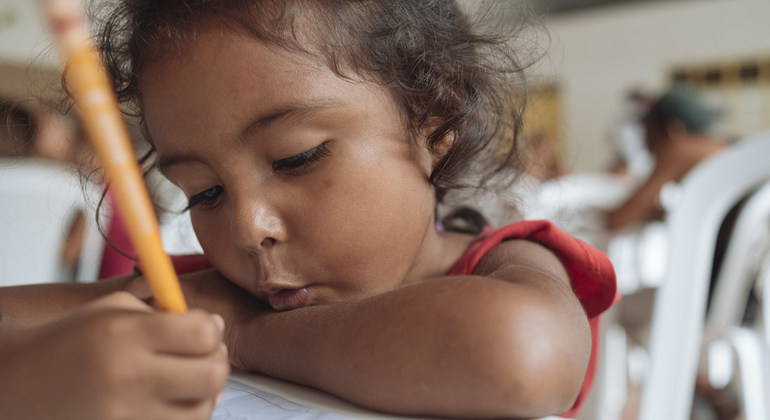
The increasing needs of refugees and migrants from Venezuela have worsened with the COVID-19 pandemic, say UN rights experts. The number of Venezuelans worldwide who’ve gone on the run has now topped six million, with the vast majority hosted by countries in Latin America and the Caribbean.
The UN refugee agency (UNHCR) and migration agency (IOM), have stepped up their response to the crisis and are launching a joint appeal for $1.79 billion, to fund a regional plan for supporting the increasing needs of the refugees and migrants from Venezuela, and their host communities across 17 countries in Latin America and the Caribbean.
COVID factor
Violence, insecurity and a lack of food, medicine and other services in Venezuela had forced millions of people to flee the country, creating one of the largest displacement crises in the world, according to the UN refugee agency.
“The COVID-19 pandemic has further aggravated the already delicate living conditions of refugees and migrants from Venezuela. In addition to serious health impacts, the health crisis has caused economic disruptions and exacerbated protection risks,” said Eduardo Stein, Joint UNHCR-IOM Special Representative for Venezuelan refugees and migrants.
The agencies noted that the pandemic had amplified a situation that was already precarious in terms of growing unemployment and poverty and access to education and basic services.
Serious protection risks arising from their lack of regular status, and closed borders due to the pandemic, have led to Venezuelans resorting to using informal routes.
These journeys are often taken on foot, and at great personal risk involving extreme climate conditions, natural hazards, threats from human traffickers or exploitation and abuse by smugglers.
Giving back
“Those who have left Venezuela are ready to contribute and give back to the communities that have welcomed them,” the joint representative said, noting that support from the international community remains crucial to helping the refugees and migrants and their host countries to ensure that “no one is left behind”.
This year’s response plan brings together 192 partner organizations involved in the response, including United Nations agencies, international and national non-governmental organizations, civil society, and refugee-led, migrant-led and community-based organizations.
